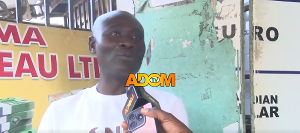Ghana and the European Union have signed two financing agreements worth 92.9 million Euros (about GH¢639.6 million) in budget support to assist the country in its response to the COVID-19 crisis, as well as the prevention of electoral violence and providing security to the northern border regions of the country.
The budget support financing agreement – about GH¢600 million – is a special emergency budget support, which will be issued in a single disbursement to the government’s treasury.
This funding contributes to Ghana’s crisis response and is expected to help address the economic and fiscal impact arising from the COVID-l9.
The support takes keen cognizance of the shortfalls in Government revenue and the unanticipated increases in public expenditure.
At the signing ceremony with the Minister for Finance, Ken Ofori-Atta, the EU Ambassador to Ghana, Diana Acconcia said, “This action shows the European Union ’s continued commitment to our partnership with Ghana, especially during these challenging times.
It is our joint expectation that this facility will bolster the on-going effort of Government to mitigate the effects of the pandemic, by supporting the private sector, households as well as the most vulnerable.”
“This support is part of the EU’s Team Europe package that combines resources from the common EU budget, the Member States and EU financial institutions. Our common objective is to help Ghana respond effectively to the socio-economic impact of the COVID-19 crisis and put in place mitigating measured,” the Ambassador indicated.
Team Europe has already mobilised almost 36 billion euro (the equivalent of GHc 243 billion) for its global response to the COVID-19 crisis.
The EU, as global actor and major contributor to the international development cooperation system, promotes a coordinated multilateral response, in partnership with the United Nations, International Financial Institutions, as well as the G7 and the G20.
At the same occasion, another financing agreement; Preventing Electoral Violence and Providing Security to the Northern Border Regions of Ghana, NorPrevSec in short. While we refocused most of our activities towards the fight against COVlD-19, we retained NorPrevSec as it touches upon another issue of vital importance to Ghanaians: human security in the context of potential electoral and communal violence.
The 5.9 million euro – thus, GH¢39.6 million programme – will tackle the threat of the rise of violent extremism, terrorism and organised crime in the most vulnerable districts of Northern Ghana.
“In the “Team Europe” spirt, it will be partly implemented by FIAPP, a Spanish development agency,” the Ambassador said.



Business News of Thursday, 1 October 2020
Source: goldstreetbusiness.com

















